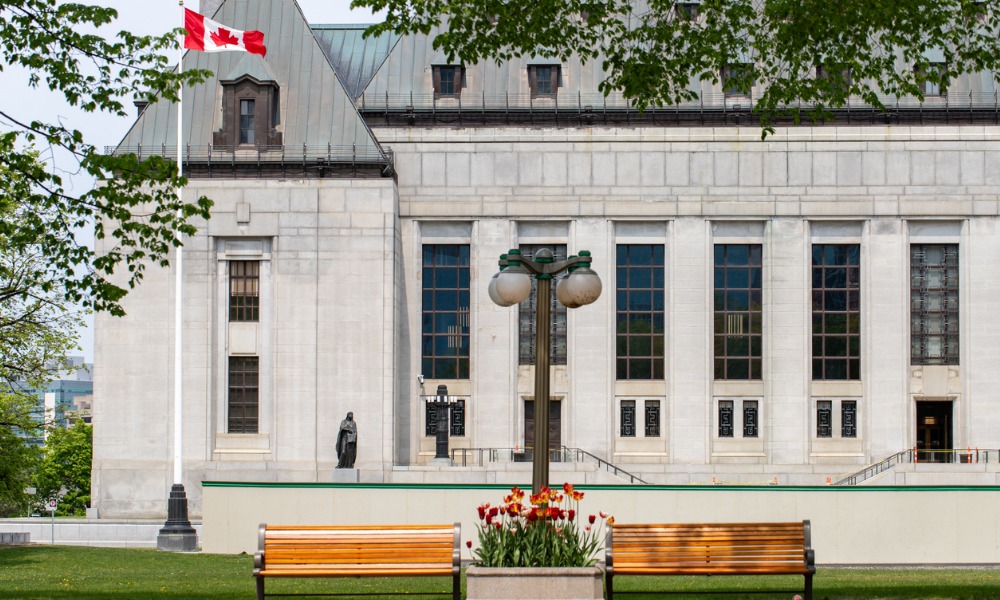
Decision dealt with s. 178(1) of the Bankruptcy and Insolvency Act

Through their bankruptcy, two people found to have violated the Securities Act will be discharged from the administrative penalties but not disgorgement orders imposed by the BC Securities Commission, the Supreme Court of Canada ruled this morning.
In Poonian v. British Columbia (Securities Commission), 2024 SCC 28, the Justices agreed that disgorgement orders are not exempt from discharge in bankruptcy. The majority of five Justices found that the administrative penalties are exempt from discharge because they do not directly result from the offence but arise indirectly from the commission’s decision impose a sanction. Two of the judges would have found that the administrative penalties do directly result from the crime and should not be discharged.
“This case has been a difficult decision for the commission,” says BC Securities Commission (BCSC) chair and CEO Brenda Leong. “On the one hand, we're very pleased that the court recognized that disgorgement orders – a type of sanction that requires a bad actor to give up funds that they obtained as a result of their misconduct – survives bankruptcy. The confirmation of the court strengthens and supports our investor protection efforts and is a partial win for investors.”
“On the other hand, we view it as a bit of a setback, in that the decision affirmed that the Bankruptcy and Insolvency Act, as drafted, does not go far enough to exempt the administrative penalties from bankruptcy.”
She says the BCSC has long advocated for changes to the Bankruptcy and Insolvency Act (BIA) to expressly exempt securities sanctions from bankruptcy, noting that they have worked with the Canadian Securities Administrators to support that change.
“The federal government needs to act now to make that change in order to protect investors in this country.”
The British Columbia Securities Commission (BCSC) imposed a disgorgement order and administrative penalties totalling around $19.1 million against the appellants, Thalbinder Singh Poonian and Shailu Poonian. They were found to have violated the Securities Act through market manipulation that caused investors to lose millions of dollars.
The appellants sought an absolute discharge from bankruptcy. Under s. 178(1)(a) of the BIA, an order of discharge does not release a bankrupt person from “any fine, penalty, restitution order or other order similar in nature to a fine, penalty or restitution order, imposed by a court in respect of an offence.” According to s. 178(1)(d) A bankrupt person will also not be released from “any debt or liability arising out of fraud, embezzlement, misappropriation or defalcation while acting in a fiduciary capacity.” And under s. 178(1)(e), there will be no release for “any debt or liability arising from obtaining property or services by false pretences or fraudulent misrepresentation.”
Neither administrative penalties nor disgorgement orders are exempt from discharge under s. 178(1)(a), said Justice Suzanne Côté, who wrote the reasons for the majority, because the penalties must be “imposed by a court,” not an administrative tribunal or regulatory agency.
Section 178(1)(e), however, exempts disgorgement orders, but not administrative penalties, said Côté. The latter do “not result directly from the fraudulent scheme,” while “there is a direct link between” the former “and the bankrupts’ fraudulent conduct.”
Dissenting in part, Justices Andromache Karakatsanis and Sheilah Martin would have found that both administrative penalties and disgorgement orders “properly fall within the narrow scope of s. 178(1)(e)” because they are both debts originating from the bankrupts obtaining property by false pretences or fraudulent misrepresentations.
The majority and the dissenters agreed on s. 178(1)(a).
Counsel for the appelants declined Canadian Lawyer’s request for an interview.
At the SCC, the appellants argued that s. 178(1) does not say that debt from administrative monetary penalties or disgorgement orders arising from securities law violations are exempt from absolute discharge in a bankruptcy.
The BCSC got a court order declaring that the money the appellants owed would count as a debt under s. 178(1), meaning they could not shed the debt through an order of discharge in their bankruptcy.
The BC Superior Court agreed that the debts counted as fines, penalties or restitution orders imposed by a court, and that they were the result of obtaining property or services by false pretences or fraudulent misrepresentation. The Court of Appeal found that a court had not imposed the penalties, but that the Superior Court had correctly ruled that the fines fell within the exemptions under s. 178(1).